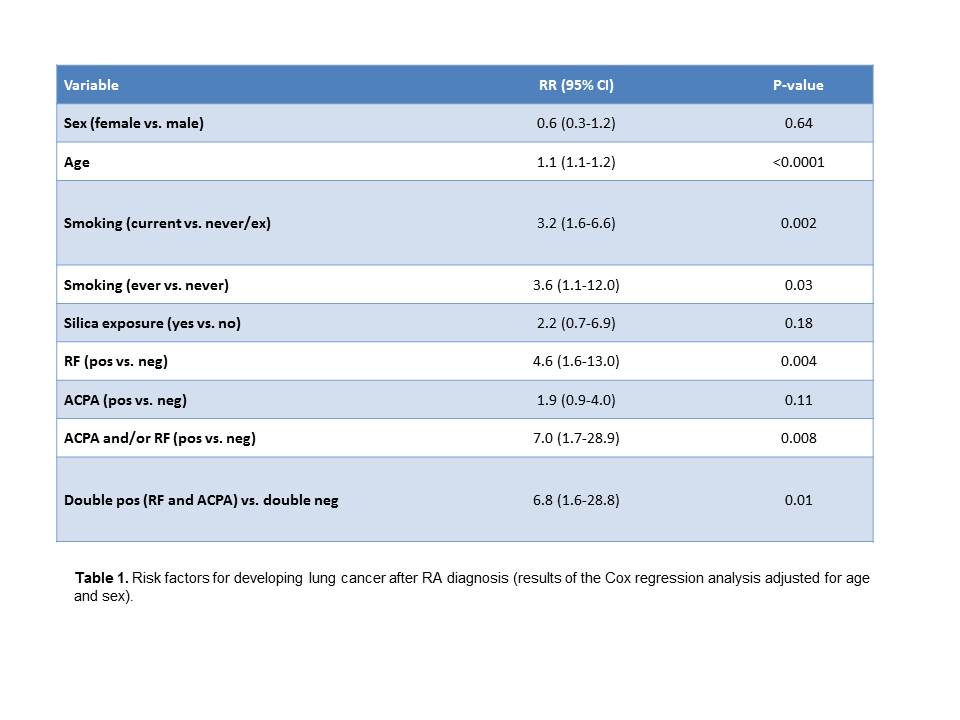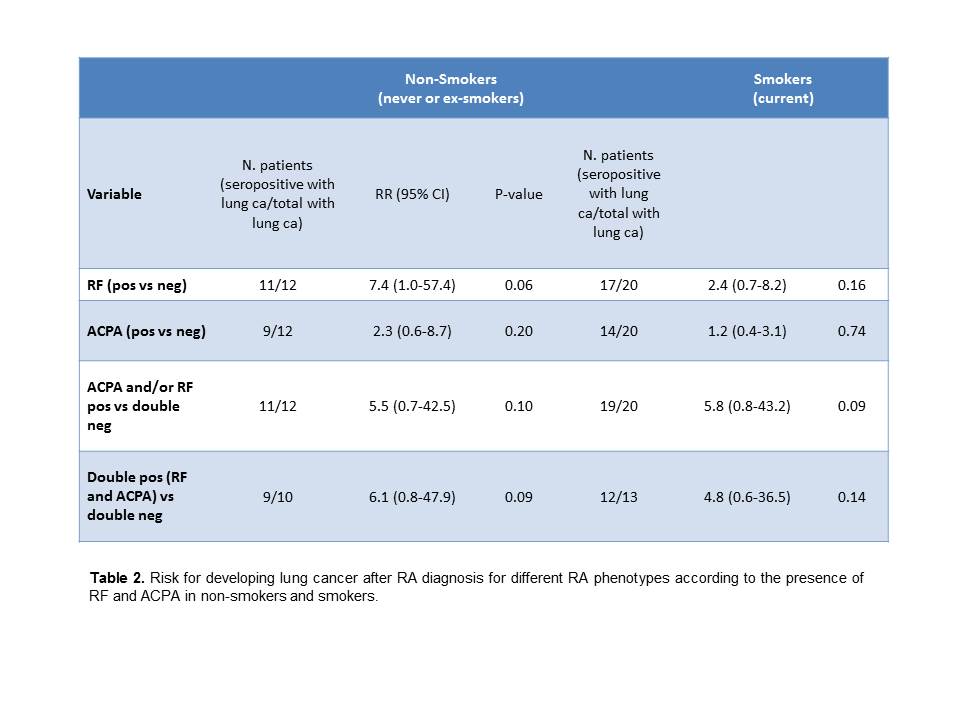Session Information
Date: Sunday, November 8, 2015
Session Type: ACR Poster Session A
Session Time: 9:00AM-11:00AM
Background/Purpose: It has been shown that patients with Rheumatoid Arthritis (RA) are at increased risk for certain malignancies, among them lung cancer. We aimed to investigate the association between lung cancer and different RA phenotypes based on rheumatoid factor (RF) and anti-citrullinated peptide antibody (ACPA) status.
Methods: We used the population-based case-control study EIRA (Epidemiological Investigation of Risk factors for Rheumatoid Arthritis). Patients with RA diagnosis and controls (matched for age, sex, calendar period and area of residence) were included during 1996-2013. The data were linked to the Swedish nationwide cancer register. Cox regression was used to calculate RR. Due to the significant correlation between smoking and RA as well as presence of RF and ACPA, stratified analyses based on smoking status were performed, in order to account for effect modification.
Results: A total of 3547 RA patients and 5586 controls were included in the study. The mean age (SD) was 52 (13) years and the percentage of female was 72%. Significantly more RA patients than controls were diagnosed with lung cancer after RA diagnosis (58 vs. 26 per 100,000 patient-years, respectively, p=0.002). RA itself gave twice an increased risk for developing lung cancer when adjusted for age and sex (RR=1.9, 95% CI=1.2-3.2, p=0.01), but the statistical significance disappeared when smoking was included in the model. However, after stratification according to smoking status, RA was significantly associated to lung cancer development in never or ex-smokers (RR=2.4, 95% CI=1.0-6.2, p=0.05) but not in current smokers (RR=1.2, 95% CI=0.6-2.3, p=0.6).
In RA patients, higher age, smoking, RF positivity, RF and/or ACPA positivity and double seropositivity were significant risk factors for lung cancer (table 1). In a stratified by smoking status analysis RF positivity was significantly associated to lung cancer in non-smokers (table 2).
Conclusion: In this study RA, especially RF positive RA, was associated to the development of lung cancer in never or ex-smokers. Although not statistically significant, patients who developed lung cancer were more often positive for RF and/or ACPA irrespective of smoking status. 

To cite this abstract in AMA style:
Chatzidionysiou K, Reynisdottir G, Joshua V, Frisell T, Askling J, Catrina AI. Risk for Lung Cancer in RA and Different RA Phenotypes: Results from a Population-Based Case-Control Study [abstract]. Arthritis Rheumatol. 2015; 67 (suppl 10). https://acrabstracts.org/abstract/risk-for-lung-cancer-in-ra-and-different-ra-phenotypes-results-from-a-population-based-case-control-study/. Accessed .« Back to 2015 ACR/ARHP Annual Meeting
ACR Meeting Abstracts - https://acrabstracts.org/abstract/risk-for-lung-cancer-in-ra-and-different-ra-phenotypes-results-from-a-population-based-case-control-study/
